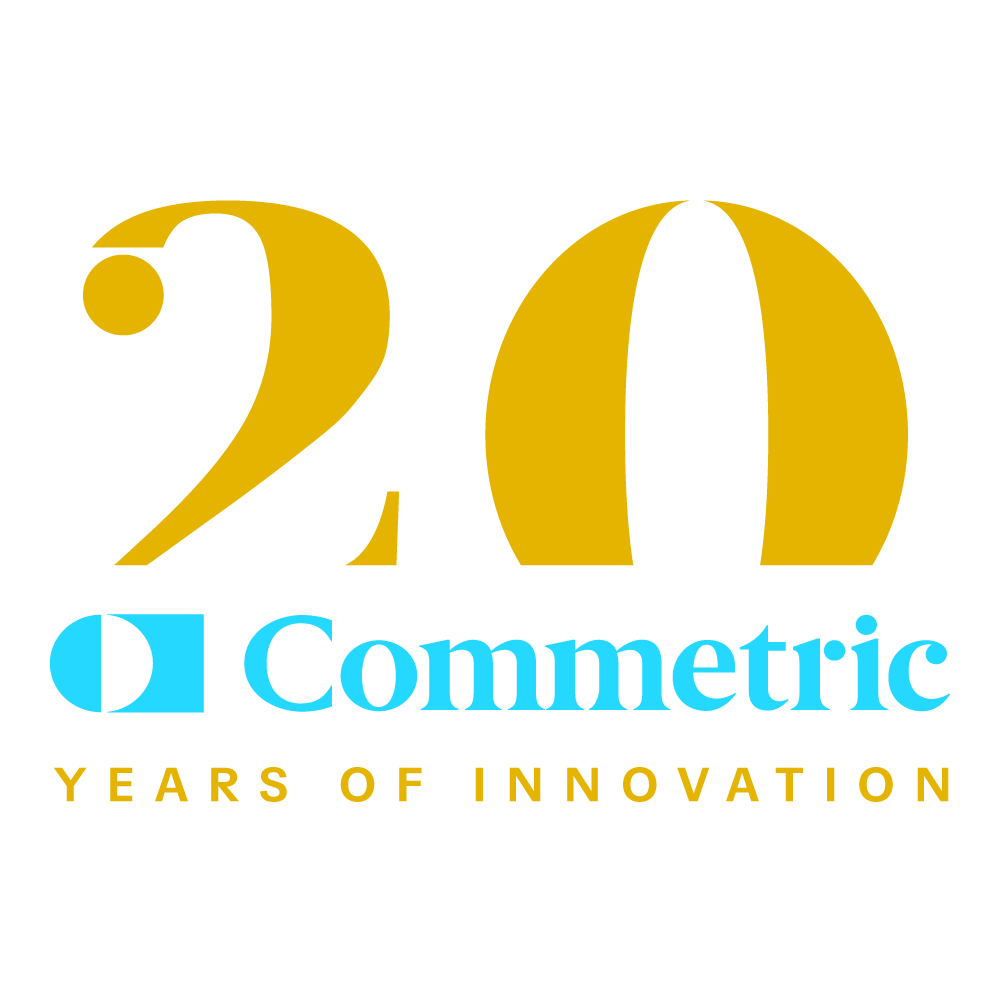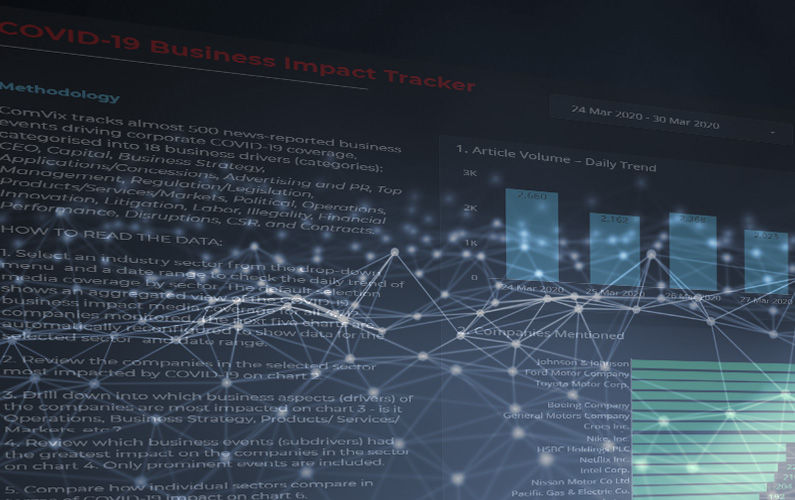Every crisis presents companies with opportunities to bolster their reputation by communicating corporate social responsibility (CSR) – a public relations practice which has had a growing importance in the media’s eye in the last couple of years.
High-profile media outlets got into the habit of scrutinising companies for their approaches towards the social issues of the day. More than ever, the notion of corporate reputation has come to imply putting purpose before profit and delivering value to all stakeholders instead of merely focusing on the interests of stockholders.
In this regard, crises present companies with opportunities to gain trust and respect by developing relevant CSR campaigns. If managed properly, crises can help firms improve their corporate reputation and emerge as industry leaders.
We decided to use the Commetric COVID-19 Business Impact Tracker to help us understand which industries and companies gained the most traction in the media in relation to their CSR activities during the COVID-19 crisis. Our free tool uses rule-based natural language processing (NLP) and machine learning to track more than 450 types of news-reported business events that affect companies and industries during the pandemic.
We analysed media data from thousands of outlets for the period 1 Jan- 02 April 2020, covering most publicly-traded companies in the US, and looked into the media resonance of the various CSR activities that took place in the context of COVID-19, i.e. the amount of media coverage that referenced the companies and their CSR efforts.
Financial Services, Apparel and Fashion, and Health took the lead as the most active CSR sectors, at least in terms of their media resonance.
In the Financial Services sector, particularly prominent was HSBC, which announced a £1 million donation to the National Emergencies Trust Coronavirus Appeal and British Red Cross, to support vulnerable people.
Another notable bank was Wells Fargo, which announced a $6.25 million donation to support domestic and global response to the coronavirus and to help public health relief efforts.
But, as we discovered using the COVID-19 Business Impact Tracker, it was actually a company from the Apparel and Fashion industry that enjoyed the highest degree of media resonance for its CRS policies:
Footwear maker Crocs, whose products are often used in medical facilities, made global headlines for giving free shoes to US healthcare workers. Perhaps this seemed like a more interesting story to journalists than, say, a bank donating money – hence the high degree of media traction.
In a statement, Crocs CEO Andrew Rees said that the company came up with the idea after asking healthcare workers how they could help. “Over the past week, we have spoken to healthcare workers, their facilities and even their family and friends, and they have specifically asked for our shoes in an effort to provide ease on their feet, as well as ease of mind as they need the ability to easily clean up before they go home to their families,” he said.
Another prominent fashion company was Ralph Lauren, which announced that it will be donating $10 million to help coronavirus patients, in addition to producing 250,000 masks and 25,000 isolation gowns with its US manufacturing partners.
Interestingly, the Health sector lagged behind Financial Services and Apparel and Fashion in terms of CRS media traction. In contrast, it dominates the media conversation when it comes to innovation.
The most prominent healthcare company in a CSR context was Novartis, which donated malaria drug hydroxychloroquine to treat several million coronavirus patients. Novartis produces the drug at its Sandoz unit and uses it to treat lupus and rheumatoid arthritis as well.
AbbVie, on the other hand, announced a donation of $35 million to support healthcare capacity for hospitals as well as to enable access to food and essential supplies for vulnerable populations in the US. The donation will also provide equipment and supplies to patients and front-line healthcare workers in European countries.
Meanwhile, Netflix is helping out-of-work production employees with a $100 million relief fund as film and TV productions were halted. This effort made the streaming giant the leading technology company in the CSR discussion.
Other tech firms got in the news for donating masks: for example, semiconductor manufacturer Intel and Shanghai-headquartered Jinko Solar, the world’s largest solar panel manufacturer, each donated 1 million masks and pieces of protective gear to health workers.
Rather surprisingly, some of the sectors that are most impacted by the coronavirus, such as Tourism and Transportation, lagged behind in terms of CSR media traction. Within tourism, for instance, mountain resort company Vail Resorts received some media attention for donating more than 50,000 pounds of perishable foods to local food banks, schools, organisations and mountain communities.

